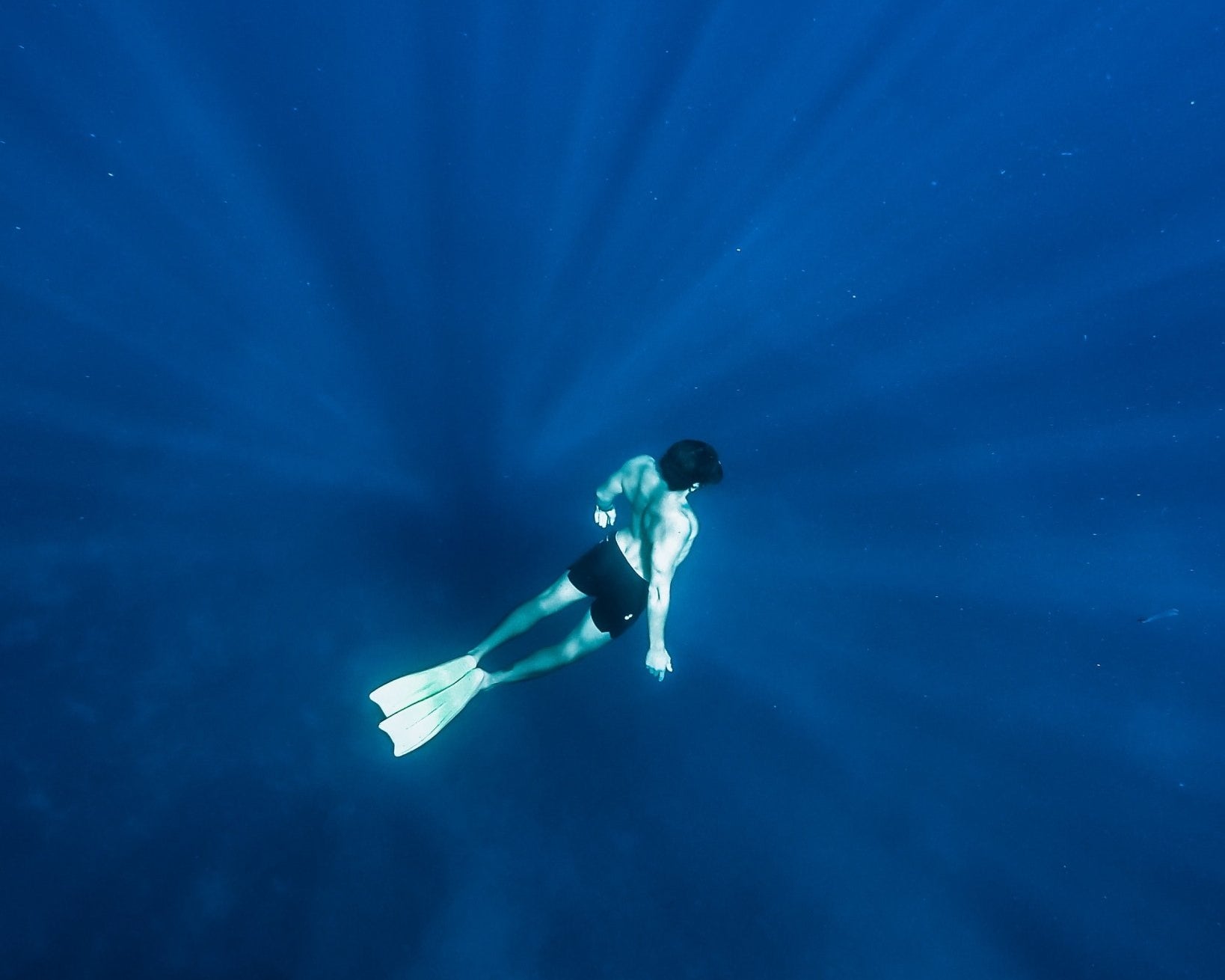
In a world filled with constant stimulation and digital distractions, many of us yearn for a sense of tranquility and balance in our lives. Surprisingly, the solution to finding mental well-being and embarking on adventures may be closer than we think—right within the embrace of water. This phenomenon is known as "Blue Mind," a concept pioneered by marine biologist Dr. Wallace J. Nichols. In this blog post, we'll explore the transformative power of Blue Mind and how it can be harnessed to manage mental well-being, nurture a balanced mind, and set forth on adventures, on your own terms.
The Blue Mind Pioneer: Dr. Wallace J. Nichols
Dr. Wallace J. Nichols, a renowned marine biologist, has spent years studying the profound connection between humans and water. He coined the term "Blue Mind" to describe the cognitive, emotional, psychological, and social benefits that being near, in, on, or under water can bring. Nichols' work has sparked a global movement, shedding light on the therapeutic and transformative effects of water on the human psyche.
''The Deepest Breath": A Dive into Blue Mind
The recent documentary "The Deepest Breath" delves deep into the world of Blue Mind, exploring the experiences of individuals whose lives have been touched and transformed by their connection to water. The film takes us on a journey through underwater realms, deep water swimming adventures, and personal stories of people who have found solace and renewal in the water's embrace. "The Deepest Breath" beautifully illustrates how Blue Mind can be a beacon of hope in our fast-paced, stress-ridden lives.
The Sensory Experiences of Water: Touch, Sight & Sound
Water engages our senses in profound ways, offering a multisensory experience that can soothe the mind and elevate the spirit.
Touch:
The touch of water on the skin, whether through a calm lake, crashing waves, or a refreshing splash, has a therapeutic effect. Cold water swimming, for instance, can invigorate the body and awaken the senses, providing a boost of dopamine (aka the happiness hormone), that enhances mood and energy levels.
Sight:
The sight of water, from tranquil lakes to vast oceans, can inspire awe and wonder. It encourages mindfulness as we immerse ourselves in the beauty of nature's liquid landscapes, reducing stress and promoting relaxation.
Sound:
The rhythmic sound of waves lapping against the shore or the bubbling of a serene stream has a calming effect on the brain. These natural sounds can induce a state of mindfulness, fostering mental clarity and creativity.
Stress Reduction: The Blue Mind Effect
One of the most notable benefits of Blue Mind is its ability to reduce stress and anxiety. Scientific research has shown that spending time near water can lead to decreased cortisol levels—the hormone associated with stress. Water environments, whether a coastal retreat or a serene lake, create a tranquil backdrop that invites relaxation and mental rejuvenation.
Boosting Creativity: The Water's Muse
Blue Mind has a remarkable impact on creativity. Nichols' research suggests that water environments, with their calming and sensory-rich qualities, can serve as a wellspring of inspiration. Many artists, writers, and innovators have found their muse in the gentle lapping of waves or the rhythmic flow of a river. This enhanced creativity can be channeled into various pursuits, including creative writing, artistic endeavors, and problem-solving.
Mood Enhancement: A Dive into Positivity
Engaging with water, be it through swimming, surfing, or simply enjoying the beach, has been linked to improved mood and emotional well-being. The release of endorphins triggered by water activities contributes to a sense of happiness and contentment. Water environments encourage playfulness and provide opportunities for joy, helping individuals embrace a more positive outlook on life.
Mindfulness Promotion: The Water's Call to Presence
Water's intrinsic beauty invites us to be present in the moment, fostering mindfulness. Mindful experiences in water, such as kayaking down a gentle river or snorkeling among coral reefs, encourage a deep connection with the natural world. This heightened awareness promotes mental clarity and a sense of inner peace.
Conclusion: Embracing Blue Mind for Mental Well-being and Adventure
In the midst of our busy lives, the concept of Blue Mind offers a gentle reminder of the therapeutic and transformative power of water. Dr. Wallace J. Nichols' pioneering work, as depicted in "The Deepest Breath," showcases how water can be a source of renewal, inspiration, and adventure. By immersing ourselves in the sensory experiences of water—its touch, sight, and sound—we can tap into its stress-reducing, creativity-boosting, mood-enhancing, and mindfulness-promoting benefits.
So, whether you choose to embrace the invigorating cold waters of a mountain stream or waterfall, to simply bask in the tranquility of a seaside sunset, remember that Blue Mind is an open invitation to nurture your mental well-being, cultivate a balanced mind, and embark on adventures on your own terms. The water awaits. Dive in, and let Blue Mind guide you on a journey of well-being, balance, and adventure that will leave your soul refreshed and renewed.
If you're feeling inspired by the pursuit of adventure, check out our post: ''Tea & adventure: the ultimate discovery.
Make sure to subscribe to our blog and follow our socials, and share with any pals who you think might be interested. And if you’re interested in giving Lions Mane mushroom a go, you may well be interested in Elevate, our herbal tea blend infused with Lion’s Mane.
Join us on our mission to create balanced minds that inspires adventure, on your own terms.
Until next time,
Tom
**Scientific References Supporting Blue Mind**
1. A study published in the journal "PLOS ONE" in 2012 reported that spending time in natural water settings enhanced creativity and problem-solving skills by 50%.
2. Research published in the journal "Nature" in 2008 revealed that exposure to natural settings and reduced exposure to urban environments were associated with improved attention and cognitive function.
3. The Pew Research Center's 2015 study found that individuals who took regular breaks from digital technology and social media reported lower stress levels.
4. A study in the journal "Pediatrics" in 2014 showed that reducing screen time before sleep improved sleep quality in adolescents, leading to better overall mental health.

